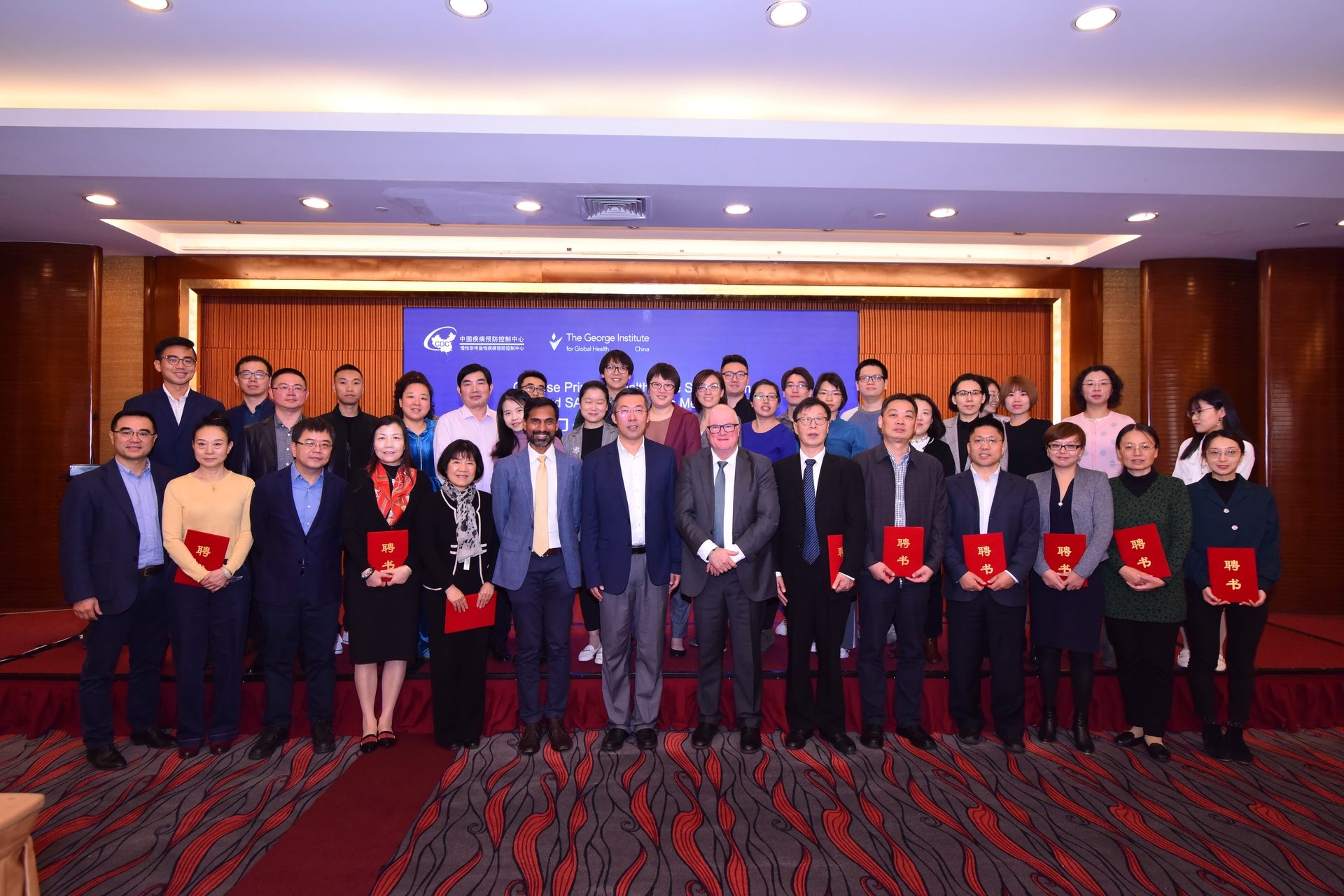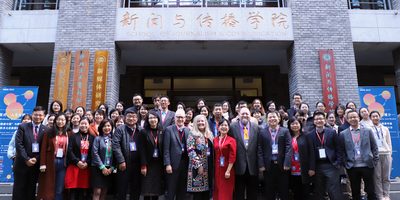
The SAPPHIRE Project is Officially Launched in Beijing
On October 25, 2019, the "SAPPHIRE" project, which is aimed at strengthening China's rural public health service system to improve the management level of hypertension and diabetes, was officially launched in Beijing. More than 40 guests from the National Health Commission, National Center for Chronic and Noncommunicable Disease Control and Prevention of the Chinese Center for Disease Control and Prevention, Zhejiang Provincial Center for Disease Control and Prevention, Sichuan Provincial Center for Disease Control and Prevention, Hubei Provincial Center for Disease Control and Prevention, Wenchuan Health Bureau, the Chinese Academy of Social Sciences, Peking University, Tsinghua University, University of Oxford, UNSW Sydney, Fuwai Hospital, Beijing Hospital, World Health Organization, The George Institute for Global Health, as well as enterprises from all walks of life and non-profit organizations witnessed this moment.
With the progress of industrialization, urbanization, population aging and changes in the ecological environment and lifestyle, chronic and noncommunicable diseases (NCDs) have become the main cause of death and disease burden in the Chinese population. In view of this, the Chinese government has actively carried out medical reform to provide primary health services for chronic diseases and made remarkable achievements. But the level of medical services is uneven, with significant gaps in quality of care that is being provided across the country.
In order to improve China's primary health service system, The George Institute for Global Health, in conjunction with the National Center for Chronic and Noncommunicable Disease Control and Prevention of the Chinese Center for Disease Control and Prevention, Ningbo Municipal Center for Disease Control and Prevention, Yichang Municipal Center for Disease Control and Prevention, Wenchuan Health Bureau, and Beijing Anzhen Hospital Affiliated to Capital Medical University, jointly launched a five-year "SAPPHIRE" project. The project aims to provide reliable scientific research evidence to improve the management level of hypertension and diabetes.
At the beginning of the meeting, Dr. Li Zhixin, the secretary of the NCNCD, and Professor Craig Anderson, Executive Director of The George Institute China, expressed their warm welcome to the participants.
Professor Craig Anderson said, "we hope to work together with the government and our partners to provide evidence for the large-scale promotion of the primary health care system by promoting the implementation in Ningbo, Yichang and Wenchuan in China."
Professor David Peiris, Director of the Global Primary Health Care Program at The George Institute for Global Health, shared the primary health care systems of different countries from a global perspective, and pointed out the importance of exploring integrated primary health care strategies that is suitable for China's national conditions.
Following that, Dr. Li Zhixin gave a detailed introduction to the SAPPHIRE Project and the members of the advisory committee.
He said, "China still has a long way to go in the construction of the primary medical care. The SAPPHIRE project has gathered professional partners from all sides, and we hope to effectively bring significant improvements to the primary medical care system that serves hundreds of millions of people in China.”
At the end of the meeting, all the participants had a heated and productive discussion around the challenges and solutions to primary healthcare system in China.






